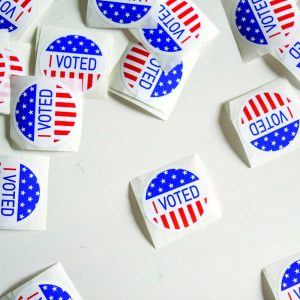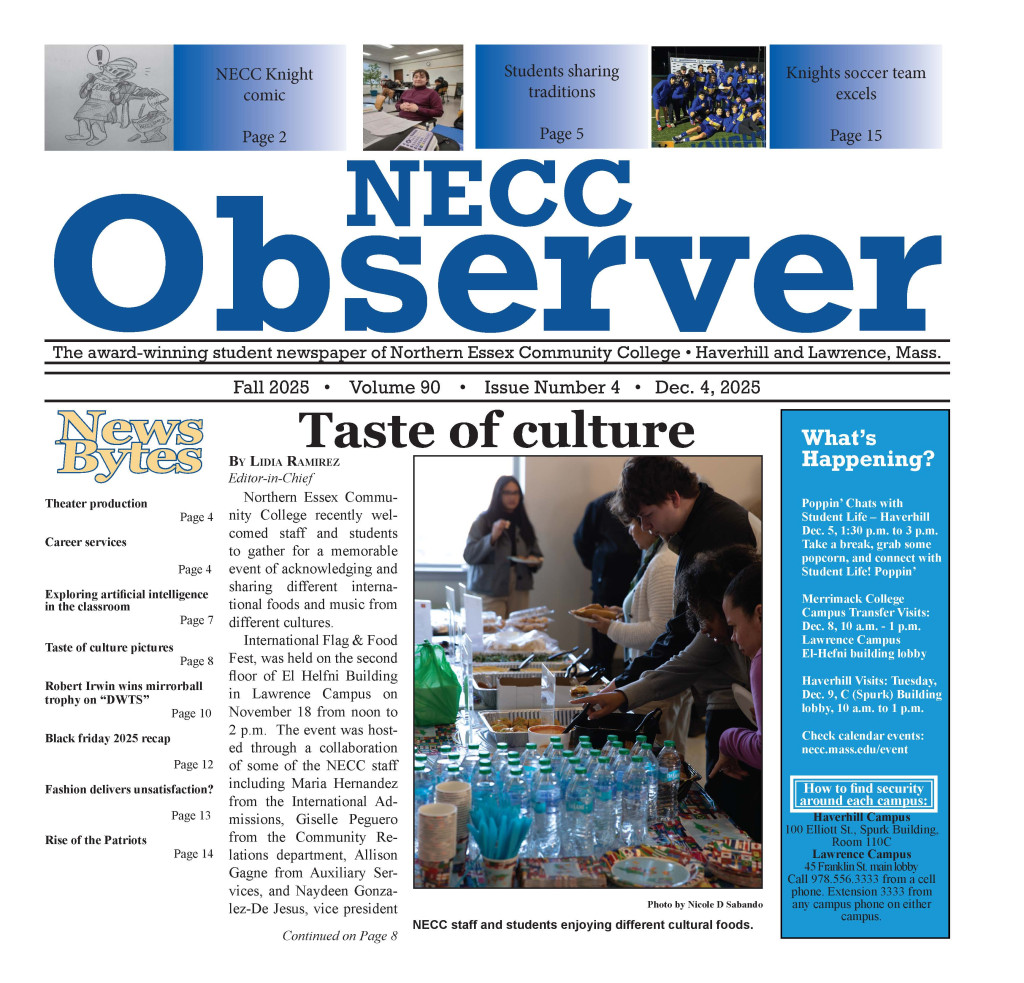
With the election behind us and the aftershock of a historical victory in full swing, some look back and wonder: could we have seen this coming?
On the evening of November 5th, I stepped into my car and began my drive around Haverhill, Massachusetts with the goal of visiting a handful of polling stations across the city. I only made it to two.
The first station I visited was located in the Haverhill High School gymnasium, and while I was not allowed inside with my camera and notebook, I was still given plenty of opportunity to interact with those exiting the polls.
My first interviewee I noticed standing across the walkway from me, and I made my way over.
Brandon, aged 22, who declined to provide a last name and lives in Dracut, Massachusetts had come with their partner Gianna, aged 23. Gianna lives in Haverhill and also declined to provide a last name.
The couple told me that they were worried about the safety of their relationship if former (and now upcoming) president Donald Trump were to snatch the victory.
“We’re an obviously queer couple, and I want to ensure that queer rights remain upheld.” Brandon said when asked about their primary reason for voting. “Another is Question Five on the ballot, I have friends in the service industry and I’m always like ‘dude, come on, you deserve at least minimum wage for all you put up with.’”
Brandon had voted early this election cycle, and said they had come to Haverhill to provide support for Gianna.
Once I decided on where to go next – our own NECC campus polling location – I started my car and left the high school behind.
Like lots of people, I tend to sometimes tune out outside distractions as I am driving. As I turned onto Kenoza Avenue en route to campus, I found myself somehow stationary in a line of cars, not knowing why or for what purpose they were there. I had never seen something like this before. Not wanting to delay further, I figured the cars belonged to members of the VFW across the street and that I had somehow missed an announcement of sorts.
It was when I sped past the front of the line that I realized what the line was for: a gas station. A gas station I had never seen busy before with a line of cars down to the beginning of the street. At the time, I thought nothing of it.
Pulling into the TC parking lot on campus, I noticed a group of pro-Trump sign holders standing on a small median. I grabbed my camera, pen, and notebook, stepped out of my car, and approached.
I was greeted by the face of Philip, a local architect who declined to provide a last name or age. He reached for a handshake and asked me what brought me over. During my conversation with Philip, I was surprised to learn that he had been in the same spot helping the group since 7:30 that morning, our conversation marking the near 12-hour interval.
“It’s been a great day so far for us, we’ve had a surprising amount of people come by and honk in support or drop in for a quick debate or conversation.” Philip told me, while pointing out another student in the middle of a debate with another sign holder.
That other sign holder, Paul, took an interest in my presence and turned his attention almost immediately to me after hearing about my reasons for being there. Now, Paul is more of what one considers a ‘stereotypical’ Trump supporter.
A small business owner who has done well for himself, and is willing to buy into anything Donald Trump feeds him.
“It’s good to have this new generation of journalists coming in. It gives me hope that the legacy media won’t be sticking around much longer,” Paul told me, after I made him aware of my studies.
However, when I attempted to explain his misconceptions surrounding the field of journalism and the importance of objectivity over neutrality, I was brushed off. “Yeah, but you have to understand that what they’re doing is — it’s intellectually dishonest. Actually, it’s worse than that,” Paul rebutted.
Having had my fill of regurgitated propaganda, I decided to cut my losses and head back home for the night, though I unfortunately did not get to visit as many polling locations as I intended. I sat at my desk, turned on my computer, and spent the rest of the night watching MSNBC’s live election coverage.
Now, as I sit here at my desk typing away, I wonder. I wonder if there was a way to see even a sliver of what would come to pass.
Perhaps we as a nation were ignorant, perhaps naive.
If there were signs, maybe we ignored them. Maybe I should have given more thought to the scene at the gas station, or the hopeful words of Philip the architect, standing on that mulch curb in our own parking lot.
There were a lot of maybes that night, and there exist quite a handful more coming down the road. Many are nervous, even scared about what might come next and I do not blame them. It is rational to fear the unknown.
However we, the press, will always have our place to inform and assuage that fear, no matter what the future of this country might look like. After all, in the words of Bob Woodward: “Democracy dies in darkness.”

